“Elegy for Gabriel Contreras”by Elizabeth Monreal Your blood was the deepest red my town had ever seen But your face remained that of an angel’s, White and soft, untouched by death. The sun kissed your cheek, Not wasting a beam of its light on anything else. You remained golden, you remained bright Even as we died slowly in darkness. Your laughter haunts this town. They say it was like honey, like morning dew. And now all of this has become you: The whisper of rain, the dim glow of fireflies, the fragrance of flowers Adorning the gentle earth that your shadow once touched. Your goodness haunts this town. Your body makes this earth fruitful, But your grave makes all your mourners blind to its beauty. The absence of your soft soul Warming their desolate streets Made a wasteland out of a paradise. This you would not recognize as your town. Your legend echoes from here to Guadalajara And no city escapes you. They named their sons after you, Gabi. Their tears fill up their wells. You keep them nourished even in their melancholy. Here, a foreigner might hear your name Taken by the wind and think you are a god “Is he a martyr? Is he a saint? Who is this Gabriel you all worship so?” You are the last good thing Anyone will ever know of this town. Gabi, if this must be your death, Let it be your last. Because in all the years after, they still tell your story here And you still die at the end of each retelling. But when the melody of your footsteps Walks your mother back home at night, We know the sun will rise once again on this town. Gabriel Contreras Ruiz 24 de marzo 1977 — 30 de abril 1992 Nacido en Cítala, Jalisco, México Gabriel “Gabi” Contreras Ruiz died in a car accident when he was fifteen years old. He was on a class field trip, riding in the trunk of a classmate’s truck with several other classmates. On the way to Teocuitatlán, the truck hit a rock, causing it to flip upside down. All of the children were hurt, but only Gabi passed away. The people of Cítala continue to remember him as a force of goodness in their town.  Elizabeth Monreal is a Mexican-American writer who lives in Las Vegas, Nevada. She is currently studying Secondary Education at Nevada State University. In her free time, she enjoys writing, reading, playing the violin, and sleeping (when she has the chance).
0 Comments
HusksAbuelita tells me that I was born in the month of Tlaloc: Part jaguar, part thunder and rain—grown like corn, in a smoggy valley downstream from the Iztaccihuatl. There, we knew how to cook for the dead: tamales sweet as suffering. With molcajetes, we mashed hearts stuffed with the blood of truths omitted while loving. I don’t remember the bullet that split Julio’s skull. But, imagine Mother hypervigilant for the sky falling. Death threats, caseloads of Bacardi, comida cold. Joy coagulates, like cars on the periférico. Finally, we see corruption’s fangs taller than any volcanos. Negrita is left at the pound. All night, camote carts cry. Then came the trunks, the take-only-what-you-need, leave the snow on the Ajusco, take Juanita Perez. Feel the bloody slice of the interim between indigena and immigrant. Here, my estadounidense classmates pretend I don’t exist. Abuelita dies. Even Tlaloc forgets me in this blurry desert: Santa Anas in our eyes, on the stingy side of survival. Somedays, we even let ourselves feel the grinding of the stone, identity sifting, the flattening of the rolling pin. Next time, consider keeping all the husks when you peel me. Nursemaid MagicFear runs like a headless chicken flapping into you at the market, when you least expect it to— wings tossing up dirt long after the machete has been wiped clean of blood. The blade is our phone. It swings at safety every time the calls arrive: “Los vamos a fusilar!” Meanwhile, Mami draws lines in the rugs pacing—she squawks, her feathers awry. Some will grab the rosary, others the gun. There is no time to wait for pricy milagros in the Plaza de la Conchita. But I was with Juanita making maza and, I swear, she left the virgencita on her gold throne, and summoned the pumas, monkeys and nāhuallis down from her verdant Oaxacan hills instead, right into our kitchen in the big city. She wove protective spells into my black braids, combed out my anxiety with her whispery Náhuatl, took me straight to the moon of her smiling face. Some will burn copal, others learn about battle from the zing-zing of hummingbirds. It’s no wonder Mami, to this day, though safely tucked into a California suburb, refuses to answer her phone: She didn’t have a nursemaid like my Juanita. The Body RemembersMy Abuelita nearly died in the fire that ate her songbirds, in the city Dad came from-- where he played the violin. Maybe it was cigarettes, maybe spontaneous combustion. We don’t talk about those things that happened in Juarez, where youth was bought and sold, like trinkets at the border. But ask my mother and she’ll tell you how Alzheimer’s brought it all back. How the body resurrects wounds before it dies: harkens back to terror through touch. After the brain falters, after fighting, escaping, crossing, sweating, surviving. You still die under a conquistador’s swinging sword. I prefer fire.  Katarina Xóchitl Vargas was raised in Mexico City. She and her family moved to San Diego when she was 13, where she began composing poems to process alienation. A dual citizen of the United States and Mexico, today she lives on the east coast where—prompted by her father’s death—she’s begun to write poetry again and is working on her first chapbook. Somos en escrito is delighted to be the first to publish her writings. New Poems by Ivan ArgüellesTAMAZUNCHALE antes de abrir la demencia para descubrir palabra tras palabra que no tiene sentido diccionario de pulmones ! pulgas y rascacielos ! para mejor comprender lo que pasa dentro del ladrillo rojo al margen de la calle que nos lleva al sur donde los muertos tratan de olvidar lo que pasó ayer cuando la gran máquina de nubes y sonidos se acostó al lado del mar que sufre tantas camas inexplicables y sin eco y ahora dime que quieres con tus ojos apagados y tu mente como sirena de ulises llamando a todos los náufragos que la ambulancia está lista a partir ! ya me voy hacia la mejor tortillera que hay para besarla en su coma de vidas paralelas y entonces con una tristeza mundial seguiré caminando un brazo mas famoso que el otro una oreja de piedra y otra en ninguna parte para qué poner en dos el uno ? multiplicar significa morir ! 07-21-20 TEOCALLI for Joe who appeared yesterday morning for a fraction of an instant in the doorway standing in the light of the morning sun confused with radiance and dazzling the stanzas of an unwritten poem shift in the monumental distances of air crane-feathered shafts rotate like minds ablaze in the pyramidal distances of sky stone built on stone stepping to heaven solar flares like tongues speaking loud the destructions of cloud and thunder and ever deeper the effects of amnesia rain drowning cities of fine dust citadels of bone and tumult havoc of wheels spun out of control bringing down all ten directions and mountains reared overnight to mark off the western margin where the archaic sea darkens rushing to mirror itself in a dream of feathers and the twins up and down they go tracing each periphery of rock and grass measuring how far it is to the lunar aleph fading like dissolved aspirin at dawn what fills the ear at such an early hour if not the Sanskrit parrot reciting chronologies and adamantine dynasties names none can rightly recall inscribed on the reverse of coins or obliterated by a mere thumb on porous sandstone libraries ! the tomb of words and to speak the labyrinthine dialects communing with deities of the Unseen and Unheard pages torn at random from the codex depicting the origins of divine Chaos night ! splendors of ink in canyons where the dead revive use of their hands such a morning atop the great Teocalli converting sums of air into breathless voice hail all the heights and renown of fire ! we have come down the Panamerican visiting each of the summers of 1953 and talking backwards to mummified relatives wrapped in serapes of liquid gold we will never reach tomorrow for sure the Nymph death will take one of us before the prophesy can be fulfilled every day is this single bright moment standing like phantom pharaohs immobile in the pellucid movie film of memory you are me and I am you ! there is grass and maps strewn all over the lawn and avenues that stretch as far back as the first city carved out of the womb ten minutes apart the matching Teocallis that cast no shadow only black light ! 06-11-20 canción del parque chapultepec cronología del aire ! arquitectura de las nubes ! soy de poco valor que lástima ! las abejas en sus columnas verticales de azul incendiado chupando chupando los huesos de la hierba dormida soy azteca soy caldeo soy de mucho valor sierras de sueño blanco que veo nomás cuando estoy nadando en mi césped de memorias todo verde desde el hombro izquierdo de césar vallejo hasta la rodilla derecha de garcía lorca acumulando los dos las muchas muertes de la luz aunque vivimos como momias en Tenochtitlan apenas sufriendo el tránsito de los motores de las plumas yo lo único que soy es la luna chafada y transparente como aspirina a mediodía y hay mares invisibles que suben los pirámides de la frontera pistolas con ojos ! ahi viene la bala ! dame mi caballo corrompido yo soy peruano el último dios soy el mero dios de la basura hieroglífica de chapultepec fumando como nunca las chispas baratas de las olas que han venido a ahogar el estado de california poco a poco y a menudo con sus pronombres y hierro de lenguas mas muertas que el sol negro tapadera y tumba del fuego silencioso de mis pasos en el jardín unitario de la duda y por eso digo yo soy 06-17-20 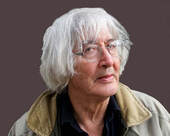 Ivan Argüelles is an American innovative poet whose work moves from early Beat and surrealist-influenced forms to later epic-length poems. He received the Poetry Society of America’s William Carlos Williams Award in 1989 as well as the Before Columbus Foundation’s American Book Award in 2010. In 2013, Argüelles received the Before Columbus Foundation’s Lifetime Achievement Award. For Argüelles the turning point came with his discovery of the poetry of Philip Lamantia. Argüelles writes, “Lamantia’s mad, Beat-tinged American idiom surrealism had a very strong impact on me. Both intellectual and uninhibited, this was the dose for me.” While Argüelles’s early writings were rooted in neo-Beat bohemianism, surrealism, and Chicano culture, in the nineties he developed longer, epic-length forms rooted in Pound’s Cantos and Joyce’s Finnegans Wake. He eventually returned, after the first decade of the new millennium, to shorter, often elegiac works exemplary of Romantic Modernism. Ars Poetica is a sequence of exquisitely-honed short poems that range widely, though many mourn the death of the poet’s celebrated brother, José. ZHEYLA HENRIKSEN
PREÁMBULO: EN SUS PROPIAS PALABRAS: Niñez y Juventud de Zheyla Loor Villaquirán Nací en Portete, un pueblito ecuatoriano aislado y al cual sólo se llegaba en barco, Mi padre me registró a los 6 meses que viajó a la ciudad, el 20 de febrero de 1949. Creo que no quiso pagar la multa, así que todos mis documentos tienen esa fecha. Pero yo festejo el verdadero día en que nací: el 16 de agosto de 1948. Creo yo tendría 6 años cuando mamá dejó Portete, donde nacimos todos, con sus dos últimos hijos, mi hermano Manolo y yo, para vivir en la ciudad de Esmeraldas. Jamás volvimos, aunque siempre teníamos las maletas listas porque mamá decía que nos iba a mandar de vacaciones con una hermana mayor que vivía allí. A la ciudad sólo se llegaba por medio de un barco muy primitivo. El dolor de la muerte de un hermano de 16 años y por la causa que ya se nos la iba llevando el mar (literalmente porque mi hermano y yo pescábamos desde la cocina), mi mamá decidió abandonar el pueblo. Portete, sigue siendo un pueblito, pero al frente se ha construido un resort muy moderno. Con la marea baja se puede cruzar a pie del hotel al pueblito. Al subir el mar hay que usar una lancha. Que yo recuerde, estaría yo en 4to o 5to grado cuando comencé a escribir poesía. Casi todas mis compañeras de la escuela primaria eran mayores que yo y tenían enamorados. Supongo que sabrían que yo escribía poemas, por eso me pedían que les escribiera acrósticos para sus enamorados. No recuerdo los poemas. El único poema que la memoria recuerda es el de mi primer amor por un torero imaginario que conocí en la “plaza”. Con decirte que yo no tenía ni idea de lo que era amor ni tampoco de lo que era una “plaza de toros”. La única plaza que yo conocía era la que también llamábamos mercado. Así es que a mi toreador “lo conocí” en el mercado. Mi maestra no creyó que yo hubiera escrito ese poema, pero lo corrigió y recuerdo la palabra “contendor” supongo de “contender” que ella substituyó por la mía: Pasando yo por la plaza vi a un hermoso torero que por mí daba la vida que por mí daba su amor Estamos ya cara a cara vamos para mi casa que tengo todo arreglado para realizar nuestra boda Aquel torero garboso le tocó pelear con un toro de los más feroces que había El toro ya lo vencía cuando alzó la vista hacia mí y dijo: ¡oh morena! ¿aquí habéis estado? Sí, aquí me hallo mirando, Mirando cómo peleas por vencer a tu contendor Pero, ¿de qué me vale ese honor? Y así terminó mi vida con aquel torero que por mí daba su vida que por mí daba su honor. Mis hermanos mayores ya vivían por su cuenta y las mujeres ya casadas, pero todavía había dos hermanas que estaban en un internado estudiando en la ciudad. Allí nos fuimos Manolo y yo. Ya estábamos en edad escolar y por primera vez nos separaron. Me pasé todo el año llorando y por eso perdí mi primer grado. Mi escuela quedaba al frente de la de mi hermano, pero no estábamos juntos. Mi escuela primaria era monolingüe. En la secundaria teníamos un profesor que había aprendido inglés por sí mismo, así que nos enseñó “a traducir”, entre comillas porque en realidad era puro vocabulario lo que nos enseñaba. Cuando me casé, mi esposo decidió que debíamos visitar Portete. Tendría 23 años. En aquel tiempo sólo se podía ir en barco. Recientemente se construyó una carretera y dos sobrinos me han llevado las últimas veces que he ido a Ecuador. Emigré porque estaba casada con “un gringo” que pertenecía al Cuerpo de Paz, “Peace Corps”. Lo conocí en el 2do año de universidad, cuando mi profesor de inglés tuvo que viajar a los EE.UU. y buscaba un remplazo por un mes. Encontró al que iba a ser mi esposo en la calle y él aceptó substituirlo. Así lo conocí. Mi hermano y yo nos sentábamos juntos en la clase de inglés y le hacíamos bromas de su pronunciación en español. Todavía en Ecuador, nos casamos, y construimos una casa. Estudiábamos francés en la Alianza Francesa porque yo quería continuar mis estudios en la Sorbona. Mi profesor de francés, que también era el cónsul de Francia, me había seleccionado para que yo fuera la segunda estudiante de la Alianza que él mandaría. Mi profesora de literatura de la universidad había sido la primera becaria. Pero tuvimos un terremoto muy fuerte que hizo que el edificio donde teníamos clases se derrumbara. Como mi esposo pertenecía al Cuerpo de Paz y por estar casado conmigo ya le habían renovado dos veces su estadía, le dijeron que tendría que regresar a los EE.UU. Teníamos los dos 30 años entonces. Con el derrumbe del edificio terminó el sueño de ir a Francia. Y aquí estamos, en California. ENTREVISTA: EN PLATICA: Lucha Corpi (LC) y Zheyla Henriksen (ZH) LC: Zheyla, tuve la suerte, por primera vez, de oírte declamar tus poemas en público durante un recital de poesía en Sacramento, California, patrocinado por Escritores del Nuevo Sol en conjunto con Círculo de Poetas. Dijiste algo muy interesante a modo de preámbulo a tu presentación, y es que casi exclusivamente escribes “poesía erótica”. En general, cuando alguien, y en especial una mujer dice eso, creo que el público inmediatamente piensa en el sexo o acto sexual mismo. Aunque ya no tan a menudo, también consideran a la mujer amoral. No piensan en la sensualidad, la cual es producto de la imaginación. Es decir que el erotismo no es producto del cuerpo, enteramente, y puede no preceder o ser parte del acto sexual. Así mismo, consideran a los poetas (sexo masculino) como primordiales exponentes de la poesía erótica. Aquí mis preguntas con la idea de aproximarnos a tu propia definición de tu arte poético: LC: A tu parecer, ¿Cuáles son los elementos primordiales que definen la poesía erótica en general? ¿Y de qué manera se manifiestan estos en tu propia obra? ZH: Bueno, mira, no es que yo escriba exclusivamente poesía erótica, pero me inclino bastante a ella. Lo que pasa es que por haber quedado como finalista en el concurso internacional de poesía erótica en las dos veces que participé, me han dado ese título y yo me lo he apoderado. En cuanto a lo erótico como campo masculino, no lo veo desde la visión histórica sino desde el punto mítico-religioso. Me explico: Míticamente los ritos “orgásmicos” primordiales le corresponden a la mujer porque es ella la suprema dadora del placer. Entre muchos estudios, voy a mencionar sólo tres: The Great Cosmic Mother: Rediscovering the Religion of the Earth de Monica Sjöö y Barbara Mor, y en Sacred Pleasure de Riane Eisler, explican que fisiológicamente es en la mujer donde, exclusivamente, existe una conexión similar al trance religioso en el cerebro frontal y el cerebellum lo que permite el enganche al “neocortex”. Por eso en el acto sexual, la mujer experimenta un cierto trance espiritual, el éxtasis. Si observas tú la estatua de Bernini, El éxtasis de Santa Teresa, la contorsión y el relajamiento del cuerpo de la estatua es similar gesto del éxtasis sexual, (tuve la dicha de verla en W. D.C.) LC: De acuerdo. Entonces en todo esto, la mujer es la dadora del placer en la pareja! Y si es así, ¿Qué papel juega el hombre? ZH: Así es. Las investigadoras observan que en los ritos sumerios, el hombre es el objeto del placer. En los himnos a la diosa Inana, que hoy se consideran más antiguos de lo que se creía; a la mujer se la presenta como la dadora y conductora de la energía divina a través del sexo. Por tanto es también la creadora de la escritura sagrada llamada el Kundalini. Estos versos son los más bellos cánticos a la sexualidad. Sin ir más lejos, en el libro histórico como que es la Biblia, el Cantar de los Cantares contiene versos de tremendo contenido erótico. En ellos es la amada, la hablante, la que seduce y canta a su amado. LC: Hace muchos años que leí algunos de ellos, pero a escondidas. Ya sabes, la religión católica le prohíbe a la mujer leerlos. Y crecí en México, donde la iglesia católica manda. ZH: En realidad se piensa que estos versos pertenecían a libros míticos, pero con la imposición más tarde del patriarcado no pudieron eliminarlos, y más bien fue un caso de “co-option” política. La religión moderna los interpreta como un canto de amor entre el creyente y la iglesia. LC: Claro. La iglesia. La que a veces ve solamente por sus propios intereses y enriquecimiento, y la liberación sexual de la mujer no le conviene. ZH: Al imponerse el patriarcado lo erótico y la escritura erótica pasó a ser dominio del hombre y desde entonces él es el que puede cantar a la sexualidad, al amor, al erotismo no sólo de él sino de la mujer. ¿Te parece esto justo? LC: Claro que no. Pero en estos casos nunca se trata de justicia, ni siquiera de caridad, sino de conveniencia y poder. ZH: En lo que respecta a la mujer latina. El hombre le ha impuesto la modestia y el silencio, según las editoras del libro Pleasure in the Word: Erotic Writing by Latin American Women, e indican que la política del patriarcado cercenó el derecho que desde tiempos prehistóricos le correspondía a la mujer como dadora del placer y de la escritura. LC: Es decir que la mujer, al escribir cualquier tema que se le tilde de “erótico,” está aceptando que es la mejor exponente del erotismo. Pero el varón no puede aceptar la competencia, aunque hay muchos que lo ponen en términos de hacerle un bien a la mujer al reprimirla, Por el bien de la raza humana. Pero eso ya va cambiando debido a movimiento feminista. ¿Cuál es tu parecer? ZH: Lo que las poetas, y me incluyo yo entre ellas, están haciendo es recuperar su sexualidad, al crear su propio lenguaje para expresar lo erótico, deshaciéndose de la palabra-masculina. Y como me inclino mucho a lo mítico, incluso en mis investigaciones, tengo la tendencia de buscar y encontrar fácilmente símbolos míticos. Considero que en nuestro inconsciente colectivo se conservan esos mitos que son actualizados por el rito de la escritura erótica. Según Cassirer y Jung, la escritura, y especialmente la poesía, es el rito por el cual se actualizan los mitos. Ahora te voy a contar una anécdota personal. La primera vez que fui a una conferencia a la universidad de Louisville, Kentucky donde me aceptaron tanto en ponencia como en poesía, me encontré por primera vez en el panel de poesía a dos poetas eróticas, Nela Rio e Ivonne Gordon, compatriota esta última. Por primera vez leía mi poesía erótica y con tanta vergüenza que agachaba la cabeza. Luego me dice Nela, Zheyla, no debes de avergonzarte de leer tus poemas eróticos y de allí me invitó a otra lectura en Washington D.C para poemas del cuerpo y más tarde, a otras conferencias y poco a poco fui perdiendo la vergüenza que ahora me siento una “sin vergüenza”. Nela ha sido una de las poetas más generosas con la que me he encontrado en el camino de las letras, ella fue la que me dio información sobre el Concurso Internacional de Poesía Erótica en la que le habían otorgado una mención honorífica especial. LC: ¡Qué linda y generosa Nela! No tuve el placer de conocerla, pero tuve el gusto de conocer y compartir con Ivonne Gordon en San Antonio. No recuerdo bien el nombre de la conferencia, pero si el tema: Mujeres Poetas del Mundo Latino. Había otras grandes poetas de América Latina, al igual que Norma Cantú. ZH: Poema a Nela Nela contigo puedo jugar a las rayuelas cantar una ronda infantil "qué quería mi señorío matun-tiru-tiru-lán" -queremos ser poetas y cocineras, matum-tirun-tiru-lán Nela contigo vuelvo a la infancia con una canción de cuna "duérmete mi niño que tengo que hacer" lavar estos versos ponerme a comer Nela de niñas yo te enseñaría el "tun, tun ¿quién es? el diablo con los siete mil cachos o el ángel con la bola de oro" que quiere una fruta o cinta para ponerle colores colocarla en un moño Nela Correríamos nuevamente una calle cualquiera pero tomadas de la mano para robar una estrella. LC: Es como si se hubieran conocido tú y Nela desde la niñez, jugado juntas —desde siempre. Bello. Cambiando un poco el tema. Veo que has publicado tu poesía en un sinnúmero de antologías y revistas, y en ediciones de tus libros. El único de tus poemarios que tengo es el último, Confesiones de un cuerpo/Confessions of a Body, editado por la Editorial Académica española en el 2019. ¿Cuáles son los títulos de tus otros poemarios? ZH: 1) Pedazos, los recuerdos/Shattered Memories 2) Caleidoscopio del Recuerdo/Kaleidoscope of Memories 3) Confesiones de un cuerpo: Estaciones de Pasión/Confessions of a Body, Seasons of Passion. LC: Me has dicho que conociste a Phan Thi Kim muchos años después de que terminó la guerra en Viet Nam. Pero escribiste este poema muchos años antes. ¿Qué te hizo escribirlo? ZH: Otro ejemplo de la violencia contra la mujer ya desde niña, está fotografía icónica, en especial de una niña vietnamita desnuda, huyendo, de la guerra en Viet Nam. El poema que yo le escribí: “PHAN THI KIM”, fue publicado en 2003 en la exposición de poesía Outspoken Art/Arte Claro, dedicado a la eliminación de toda forma de violencia contra la mujer. PHAN THI KIM You have forgiven us. Your fragile body running naked stuck in my mind. For years the picture has been encrusted in my retina, behind the infernal dust that burned your body half. Nic Ut save your image for the world to see his crime. I still don’t understand why man has created war. Tiny body, open mouth arms flapping horizontally, Behind, in front, in the center you, the Christ, the city. And still the world goes on the same crime for ever and ever. Phan Thi you are thirty three now and you came to forgive us. ********** LC: Ha sido un placer platicar contigo, Zheyla. Mil gracias por tus versos. Un cálido abrazo. © Poetry by Zheyla Henriksen OLVIDOS DE MI PADRE |
Archives
July 2024
Categories
All
|
Donate and Make Literature Happen
is published by the Somos En Escrito Literary Foundation,
a 501 (c) (3) non-profit, tax-exempt corporation. EIN 81-3162209



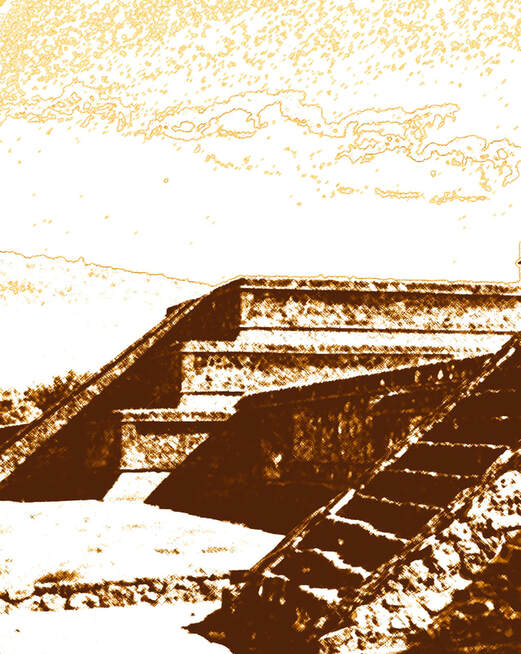

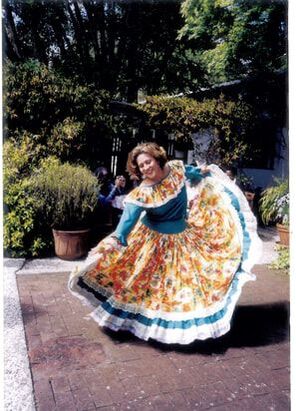

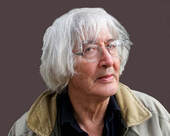
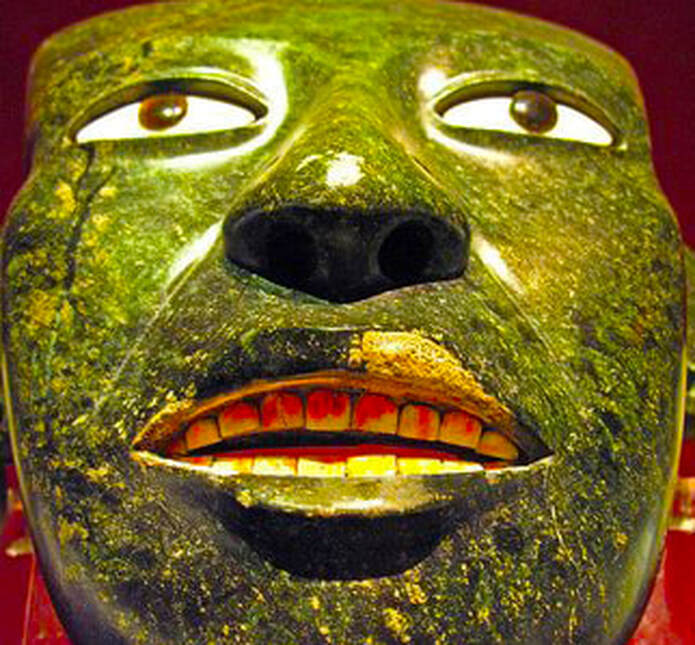
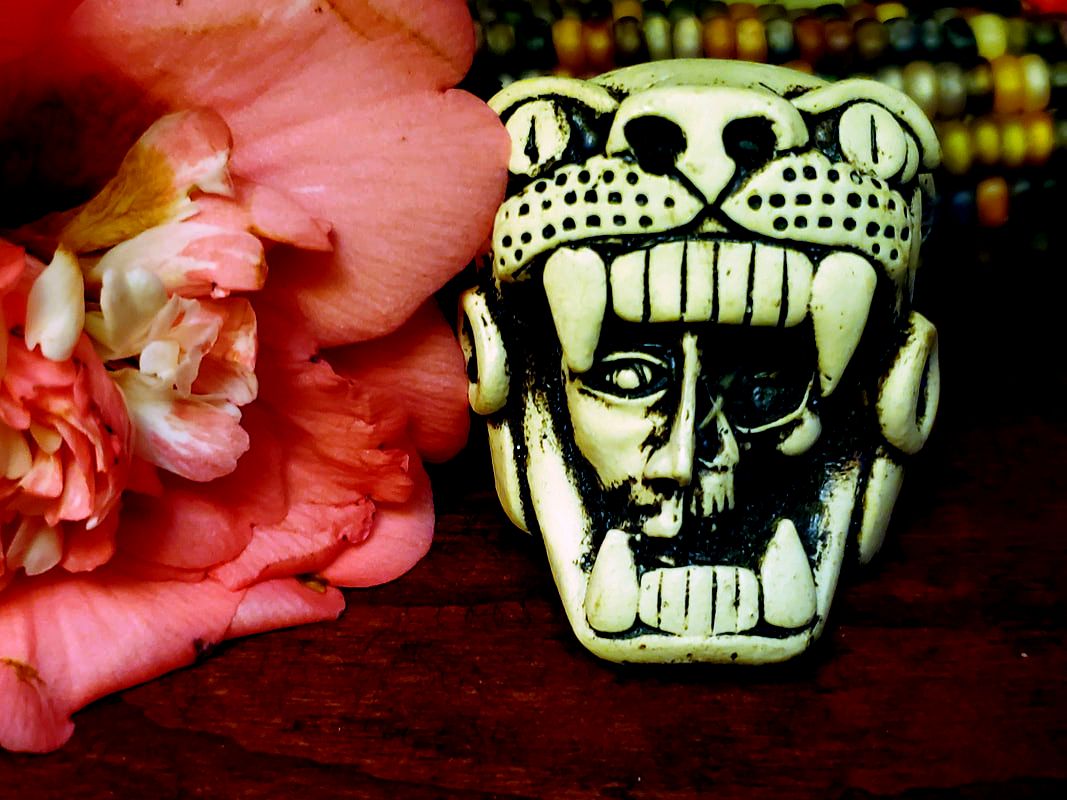


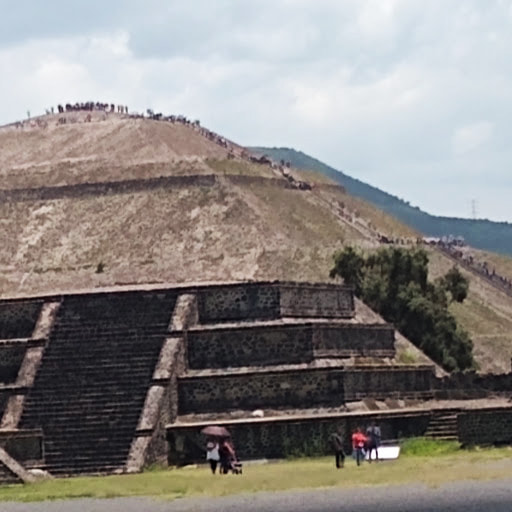
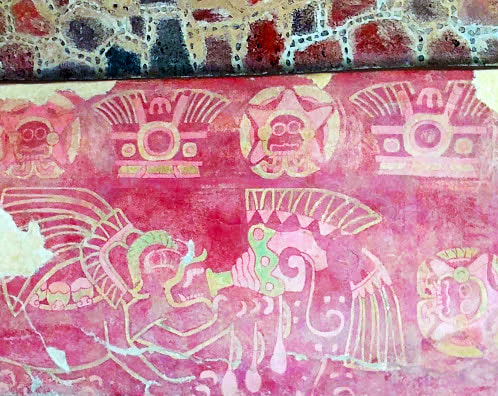
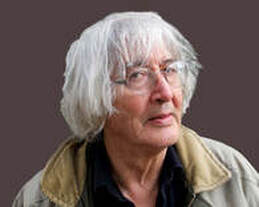
 RSS Feed
RSS Feed